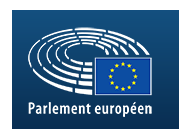Document type: Answer to o a question, published in th Journal Officiel de la République Française
Authors: question: Béatrice Roullaud (Rassemblement National - Seine-et-Marne). Answer: French Ministry of Agriculture and Food Sovereignty.
Question: Béatrice Roullaud asks the French Minister for Agriculture and Food Sovereignty about the practices of live castration, killing of piglets by slamming them against a structure and routine tail docking of piglets on certain pig farms. Criticized for years by animal protection associations, live castration is an operation performed without anesthesia to prevent an unpleasant smell when uncastrated pigs are cooked. However, scientific studies have shown that only 5% of male pigs are likely to give off this smell, and that not all consumers notice it. 'Slamming' is the practice of killing piglets deemed too weak to be economically viable, by slamming them against a wall or onto the floor. These two techniques, along with routine tail docking, are cruel to the animals and fail to provide the end-of-life conditions that society should guarantee them. In 2020, the French Minister of Agriculture pledged to end live castration of piglets by the end of 2021. A first decree was then signed in February 2020 to ban live castration from January 1, 2022, and to provide a framework for the performance of castration by requiring pain relief for the piglet. Henceforth, breeders must use anesthetics and analgesics or must no longer castrate piglets. But the use of these products is difficult to monitor and, in fact, goes unmonitored. Indeed, the L214 group of activists has recently revealed that the violent and illegal handling of piglets is still taking place on certain farms. She therefore asks whether the Ministry intends to ban the slamming and castration of piglets outright, in order to prevent these intolerable abuses.
Answer: Improving animal welfare and combating animal abuse are government priorities. France is actively involved in all European and international efforts on this subject, with a view to ensuring a sensible transition in farming methods, taking account of societal expectations and seeking actions to leverage the additional costs incurred by farmers in particular, without creating unfair competition on the European market. The French government considers that the changes must be supported by the most recent scientific knowledge, and accompanied by the existence of alternative production methods and prospective impact studies. In particular, it is essential to take into account the capacity of the industry to adapt over time to new requirements before such measures are defined. France and Germany have led the way in banning the live castration of piglets, and in the management of the pain the practice causes. With regard to the grinding of piglets' teeth and tail docking, regulations prohibit the routine performance of these practices. Farms that contravene the regulations are subject to administrative and legal measures that reflect the seriousness of the case. Last, the practice of slamming piglets against a structure is currently permitted by the regulations, to prevent further suffering due to their state of weakness. However, work is underway with all representatives of the industry, veterinarians and research and scientific institutes to find solutions to support farmers and ensure the best possible protection for piglets. The on-farm practices of castration, tail docking and killing - are the subject of in-depth study by government departments, working with all the pig industry's professional partners, scientists, technical institutes and veterinarians, to find solutions to the practical problems encountered on the ground. The aim is for two dedicated technical groups to draw up a roadmap on the subjects of castration-caudectomy and killing in 2024. It is intended to revise the protocols, support the "castrabea" resource center, make veterinary products and alternatives to castration available to farmers, specify a positive list of pig health problems that should lead farmers to isolate pigs in hospital pens, determine what proofs of exceptional circumstances should be accepted in the event of an inspection, and revise good practice guides for killing pigs on farm... All these actions should not only help farmers to meet the regulatory requirements in terms of animal welfare, but also help inspection services to better understand the circumstances at the farms they inspect.





